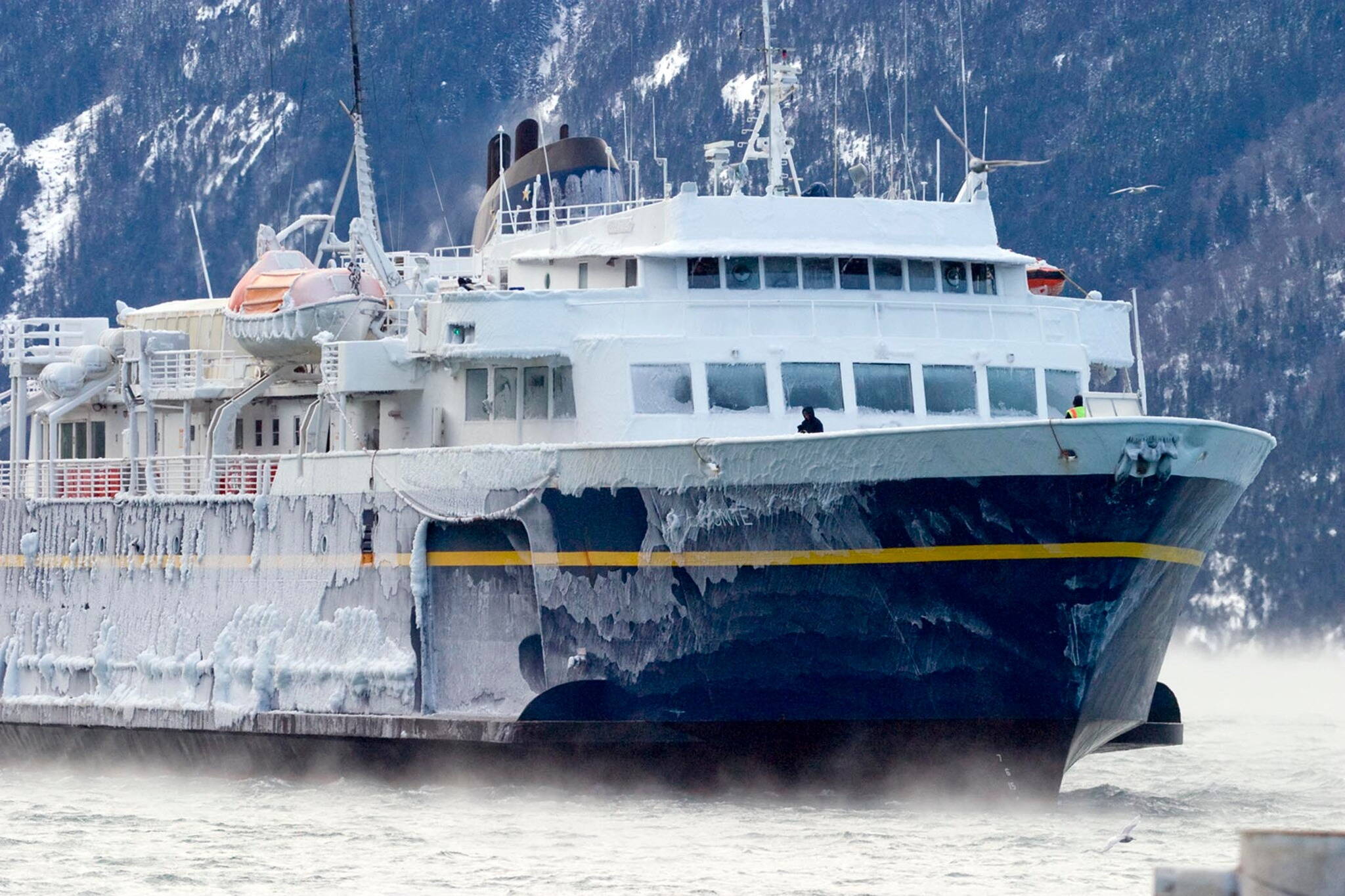Last week the Federal Transit Administration announced it was awarding $131 million in grants for the Alaska Marine Highway System (AMHS). That’s in addition to $285 million the state was awarded last January. “We’re grateful for these targeted investments in the ferry system from our federal partners,” Juneau state Sen. Jesse Kiehl said, “and we’re putting them to wise use.”
But the Legislature can’t do that without Gov. Mike Dunleavy agreeing to provide the required matching state funds. And like the first round of grants, it seems he needs to be pushed into accepting them.
Kiehl was quoted in a joint press release put out by Sens. Lisa Murkowski and Dan Sullivan. It included statements from five other legislators representing coastal communities. Notably missing was any word of appreciation from Dunleavy.
On Tuesday, Murkowski sent him a letter urging him to include the matching funds “in your December budget proposal to signal to the State Legislature that it is a top priority to secure these awards.”
Such a statement wouldn’t be necessary if our congressional delegation and governor were on the same page.
Murkowski was responsible for ensuring the 2021 Infrastructure Investment and Jobs Act included significant funds for essential ferry service to rural Alaskan communities. Its passage also marked the first time the state can apply federal-aid highway funds for AMHS operations and repairs.
It came at a critical time too. The system had almost been ground to a halt.
While campaigning for governor in 2018, Dunleavy claimed he understood and supported keeping AMHS viable. But once in office, he imposed drastic cuts to the agency’s budget that led to the most dramatic service reductions in AMHS’s 60-year history. While the situation isn’t as bad now, it’s still operating at a level well below prior years.
On top of the cuts, Dunleavy hired consultants to study options to privatize most of the system. After they reported it wasn’t feasible, he established the Alaska Marine Highway Reshaping Work Group. It was tasked with providing recommendations to better position the agency to function effectively on a shoestring budget.
The infusion of $400 million dollars of federal funding essentially reverses course. It promises to grow the system in the direction of its past operating capacity. And that, coupled with the requirement that the state provide matching funds, might be incompatible with Dunleavy’s long term fiscal goals.
I say might because that’s only one possible explanation for why he’d consider declining the grants.
Another may be resistance to Congress pushing its policies onto the state.
That’s how former Gov. Sean Parnell felt in 2013 when he decided not to implement the Medicaid expansion provision of the Affordable Care Act (ACA). That too required the state contributions — $200 million in exchange for $2.9 billion in federal funds over a seven-year period.
But Parnell’s position was backed by almost his entire party. Every congressional Republican, including Alaska’s delegation, opposed the ACA. And after the U.S. Supreme Court ruled states could opt out of the Medicaid expansion provision, he and almost every other Republican governor did exactly that.
That’s not the case for the Infrastructure Investment and Jobs Act. All three members of Alaska’s delegation supported it. As did 18 other Republican senators and 12 Republican House members.
But before President Joe Biden signed it, his immediate predecessor chastised every one of them for giving “Biden and the Democrats a victory.” Since then, Dunleavy has refused to acknowledge Murkowski’s leading role in drafting and negotiating the legislation.
Remember, during his four years in the White House, Donald Trump frequently claimed to have a plan to rebuild America’s infrastructure. He made four or five halfhearted attempts, but not one piece of legislation was ever introduced.
Now imagine how Dunleavy would have responded to multimillion-dollar grants if Trump had signed a similar infrastructure bill before he was voted out of office. Even for funds earmarked for Alaska’s ferries, he would have showered Trump with praise and directed the Legislature to appropriate every dollar of matching funds.
Whatever the political game Dunleavy is playing with these grants, it’s not about helping the rural communities that rely on dependable ferry service. And if he refuses to approve the matching funds, grants, it will add a distinction to his legacy as Alaska’s only governor who purposely failed to deliver it.
• Rich Moniak is a Juneau resident and retired civil engineer with more than 25 years of experience working in the public sector. Columns, My Turns and Letters to the Editor represent the view of the author, not the view of the Juneau Empire. Have something to say? Here’s how to submit a My Turn or letter.

